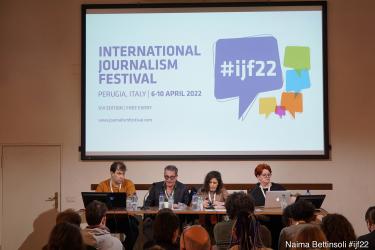Although it has been 30 years since the dissolution of the Soviet Union, the legacy of its reign – and the Kremlin’s continued influence – is still evident in former Eastern bloc countries. Nowhere is this truer than in media. Russia may have fallen by only one point in this year’s World Press Freedom Index, but that belies the extent to which its police brutality and legislative crackdowns on journalists have become models for aspiring authoritarians across the region. Reporters Without Borders finds that, as in Russia, governments in Tajikistan, Kazakhstan, Moldova, and Ukraine have “used the need to combat disinformation about COVID-19 as grounds for imposing additional curbs on press freedom.”
With more than half of the region’s countries ranking near or below 150th (out of 180 countries) in the World Press Freedom Index, the situation demands greater scrutiny. What historical and current factors have contributed to this persistent problem? What can be done to support press freedom in the region? What lessons can be drawn from other post-authoritarian countries that have gone on to enjoy a vibrant media environment?
Organised in association with Project Syndicate.








